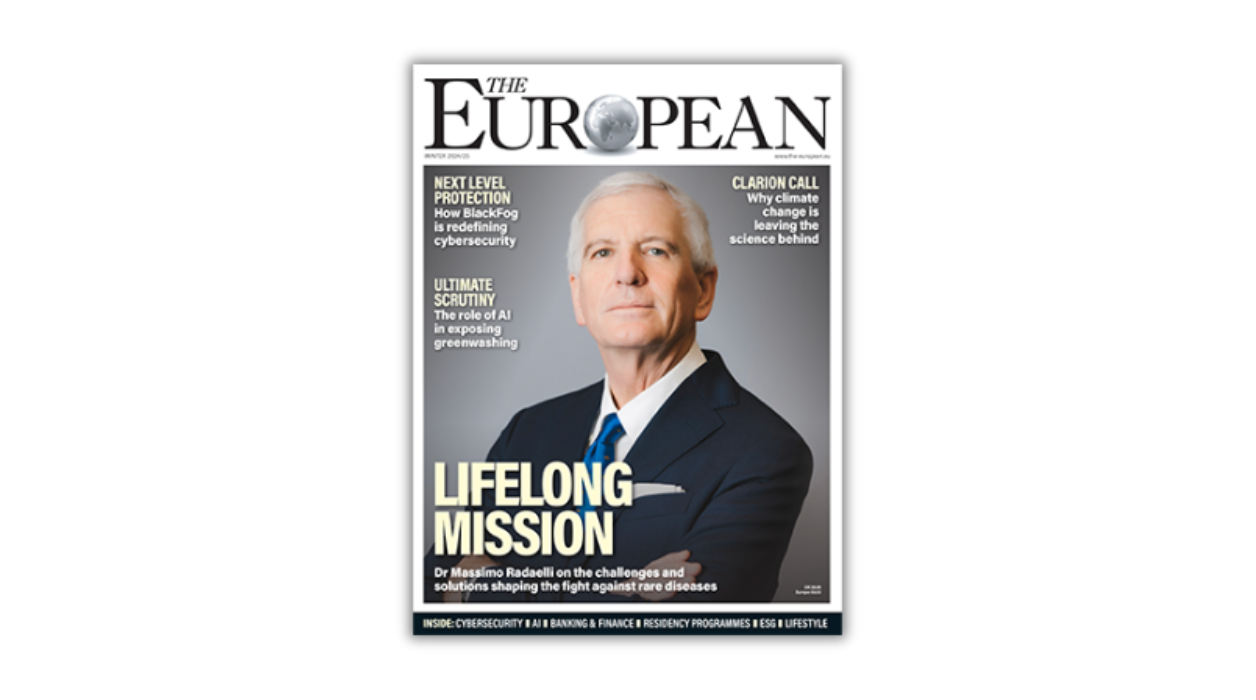What CFOs need to drive business strategy in 2023

John E. Kaye
- Published
- Accountancy, Business, Home

CFOs can be key advisors to CEOs and help guide the right choices, but they need the correct tools in place to achieve this, says Darren Cran of AccountsIQ
A CFO’s gut reaction to a new client or project win is usually one of worry, with the inevitable extra strain this puts on the finance team. Finance is, notoriously, an over-worked department. And when workload concerns arise, usually it’s an indication that the solutions in place for business management are not fit-for-purpose. But there are several other reasons which may also be placing pressure on the CFO and finance team.
Whether it’s ensuring practices align with environmental, social and governance (ESG) initiatives, taking charge of compliance with regulations or collaborating with the CEO to drive decision making, a CFO’s to-do list is ever-expanding. CFOs are also becoming more responsible for digital transformation strategies within the wider business. However, any digital journey requires technology for more accurate reporting that can help them to navigate the difficult economic environment.
The list for CFOs to complete also extends into talent acquisition and retention, with the skills shortage prominent within the accountancy profession. The wider C-suite understandably wonders how they can tackle every responsibility.
The evolving role of CFO
The roles and responsibilities of the CFO continue to expand, and the advent of new technologies alongside changing business conditions are two of the key drivers. At the fundamental level, accounting, reporting and statutory compliance are mission-critical tasks that will always remain within the finance department, and thereby, under the remit of the CFO. But these core activities are somewhat taken for granted by CEOs and the rest of the organisation, and are typically seen as the minimum deliverable requirement.
It’s important that as much effort and expense is saved on performing these duties as possible, because the CFO of today and tomorrow must spend much of their energy on utilising financial data to influence strategic decision making at the highest level. The reality is that this is difficult when the organisation trades in different currencies or the finance team needs to consolidate a number of different accounts. Month-end reconciliation may also feel like a month-long process. These tasks can be complex, manual and mundane, which affects not only the performance of the business, but can also leave a fresh and willing team demoralised and demotivated after repeated exposure.
Finance leaders need to eradicate the time and energy-sapping repetitive tasks to focus on the value-adding responsibilities being demanded by the CEO. This means analysis of strategic and non-strategic spending and understanding cost drivers. Often, assumptions on strategically important spending are mistaken, or are inherited from previous working practices that no longer match business priorities. It’s crucial that there is a joined-up approach from across the C-suite, so finance leaders can uncover areas to gain efficiencies.

Turning the finance team upside down
Delivering a consistently high level of financial reporting that can impact business strategy requires time and skill. Two things the industry, for the most part, are short of. Mark Hoban, chair of the UK Financial Services Skills Commission (FSSC) termed this not just as a skills shortage, but an “existential skills crisis” no less.
It’s now up to the leaders to flip the traditional finance function on its head. Currently, most of the time is spent collecting data, and not enough time is afforded to analyse it and generate insights. By automating mundane tasks, finance teams can take advantage of cloud-based software tools which provide timely and accurate data. Technology in this sense provides CFOs with a complete picture of the business, from one moment to the next, allowing them to orchestrate change within their department and also across the business.
Without the right toolkit to inform decision-making, CFOs are hesitant to make the big calls, which leads them to being viewed as an obstacle to positive change management, rather than a driver. Without data, the dichotomy between fast decision-making and accurate decision-making is very real. After all, it is the CFOs role to query expenditure, and explore how each pound will perform. Moving to a data driven environment, where automation and analytics are spoken fluently, can quickly help to change this perception.
In reality, many of the complex accounting problems found today can be easily navigated. Cloud solutions have been designed to allow the CFO to analyse carefully considered reports, rather than embark on a scavenger hunt to tie disparate data together into a coherent story. This undeniably gives the CFO scope to develop the more strategic aspects of the role: to use the insights gained from the financial data to provide more nuanced input into business decisions, to be able to advise on growth strategies or report in more detail on project initiatives, providing the unique insight delivered by reporting to enhance the experience learned from poring through the raw numbers.
Embracing change
It’s no secret that finance people love what they know. It’s why the transition from paper-based accounting to online tools took such a long time. And right now, finance teams can ill- afford a similar delay. Technology can provide business benefits, but the right mindset needs to be underpinning it.
With mundane and repetitive tasks taken away from the finance team thanks to one-click consolidation, hours that would otherwise be spent on data entry and data manipulation have been saved. This gives progressive CFOs the opportunity to redeploy individuals on projects that match their skillsets. For example, employees can apply themselves to agency services to colleagues in the supply chain, sales and acquisitions departments. Improved and more accurate management reporting can also benefit the business.
Strategic value and digital transformation progress will only be delivered when CFOs can gain control of the reporting and accounting processes in the business. CFOs can act as key advisors to CEOs and help decision makers make the right choices, but they need the correct tools in place to drive this guidance. With the correct solutions implemented, increased responsibilities will be seen as more of a help than a hindrance.
ABOUT THE AUTHOR

Darren Cran is Chief Operating Officer at AccountsIQ.
RECENT ARTICLES
-
 Managing cross-border risks in B2B e-commerce
Managing cross-border risks in B2B e-commerce -
 Research highlights rise of 'solopreneurs' as technology reshapes small business ownership
Research highlights rise of 'solopreneurs' as technology reshapes small business ownership -
 Human resources at the centre of organisational transformation
Human resources at the centre of organisational transformation -
 UK government sets up Women in Tech taskforce amid gender imbalance concerns
UK government sets up Women in Tech taskforce amid gender imbalance concerns -
 Liechtenstein lands AAA rating again as PM hails “exceptional stability”
Liechtenstein lands AAA rating again as PM hails “exceptional stability” -
 The Parisian business school quietly reinventing the MBA
The Parisian business school quietly reinventing the MBA -
 UK entrepreneur who founded £1bn firm acquires UAE amateur golf leader to launch world amateur Super League
UK entrepreneur who founded £1bn firm acquires UAE amateur golf leader to launch world amateur Super League -
 Why your home is the best place to teach children leadership
Why your home is the best place to teach children leadership -
 Inside the Spring 2025 Edition of The European
Inside the Spring 2025 Edition of The European -
 The Paris MBA designed for real-world leadership
The Paris MBA designed for real-world leadership -
 Soft2Bet reflects on eight years of leadership and philanthropy in new film featuring CEO Uri Poliavich
Soft2Bet reflects on eight years of leadership and philanthropy in new film featuring CEO Uri Poliavich -
 Global Banking School celebrates ‘milestone’ anniversary
Global Banking School celebrates ‘milestone’ anniversary -
 Saudi Arabia hosts the fourth Riyadh International Humanitarian Forum
Saudi Arabia hosts the fourth Riyadh International Humanitarian Forum -
 New York Congresswoman pushes for Trump’s birthday to be enshrined as federal holiday
New York Congresswoman pushes for Trump’s birthday to be enshrined as federal holiday -
 Red light, green bite: Netflix restaurant opens in Vegas
Red light, green bite: Netflix restaurant opens in Vegas -
 Read our Cybersecurity Focus supplement, featuring insights from Information Security Forum
Read our Cybersecurity Focus supplement, featuring insights from Information Security Forum -
 Davos World Economic Forum 2025: Collaboration for the Intelligent Age
Davos World Economic Forum 2025: Collaboration for the Intelligent Age -
 The European releases its Winter 2024/25 edition
The European releases its Winter 2024/25 edition -
 Read our FDI Focus supplement, featuring insights from Michael Lohan of IDA Ireland
Read our FDI Focus supplement, featuring insights from Michael Lohan of IDA Ireland -
 PizzaExpress to Expand Dough Base Stateside
PizzaExpress to Expand Dough Base Stateside -
 The two core skills middle managers need to navigate stormy weather
The two core skills middle managers need to navigate stormy weather -
 The Role of Financial Regulations in the Online Casino Industry
The Role of Financial Regulations in the Online Casino Industry -
 How to become a game-changer
How to become a game-changer -
 Taking the risk out of BOP ventures
Taking the risk out of BOP ventures -
 Releaf leading the way with marketing
Releaf leading the way with marketing



























